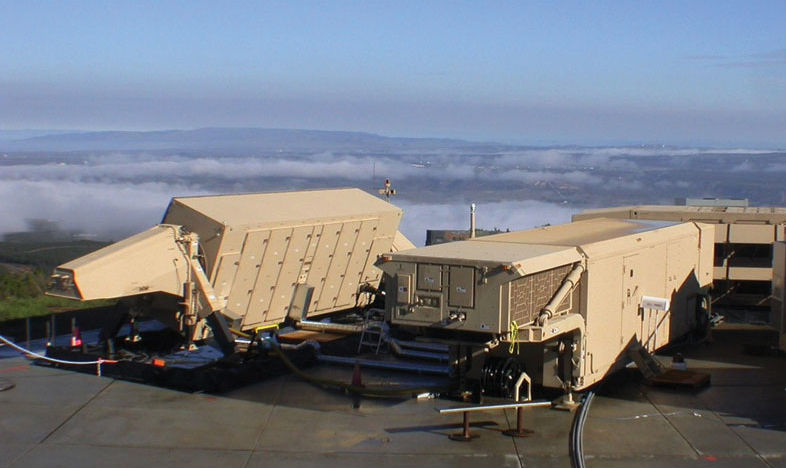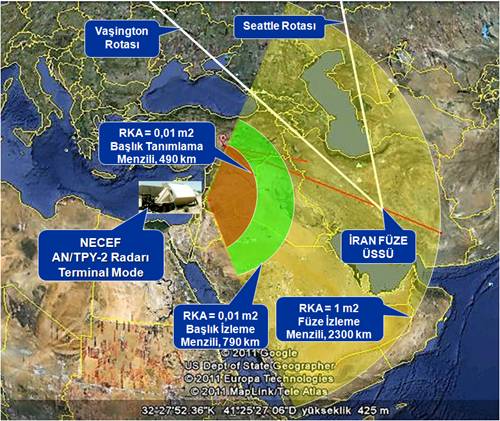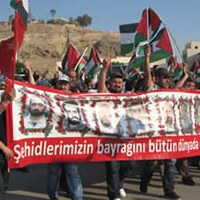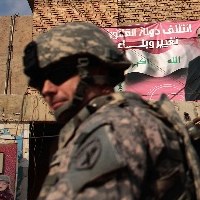![]()
Mon, 23 Jan, 2012 | By M. K. Kaya
How Much Security Will NATO’s Missile Defense Shield Provide for Turkey?
This article was first published in the Turkey Analyst, vol. 5 no. 2, (www.turkeyanalyst.org), a biweekly publication of the Central Asia-Caucasus Institute & Silk Road Studies Program Joint Center. © Central Asia-Caucasus Institute & Silk Road Studies Program Joint Center, 2012.
 By agreeing to deploy the Army Navy Transportable Radar Surveillance System (AN/TPY-2) on Turkish soil, the United States and Turkey have concluded by far the strategically most significant agreement in many years. By hosting the radar, Turkey has dispelled doubts regarding its alliance allegiances, while concurrently making itself a target of Iranian counter-measures. The crucial question for Turkey in the wake of the deployment in Malatya is the extent to which NATO’s missile defense shield will indeed provide it with comprehensive protection. Whether or not the possible security gains stand to be offset by new security threats arising is the vital question that begs for an answer, and that the Turkish authorities need to address.
By agreeing to deploy the Army Navy Transportable Radar Surveillance System (AN/TPY-2) on Turkish soil, the United States and Turkey have concluded by far the strategically most significant agreement in many years. By hosting the radar, Turkey has dispelled doubts regarding its alliance allegiances, while concurrently making itself a target of Iranian counter-measures. The crucial question for Turkey in the wake of the deployment in Malatya is the extent to which NATO’s missile defense shield will indeed provide it with comprehensive protection. Whether or not the possible security gains stand to be offset by new security threats arising is the vital question that begs for an answer, and that the Turkish authorities need to address.
Background
Turkey’s foreign policy and the international perception of Turkey’s orientation in international politics have shifted dramatically during little more than a year. As late as two years ago, Turkey was perceived as “drifting eastward”; the Turkish-Israeli row after the war in Gaza, and the fact that Ankara had parted way with its Western allies over the issue of sanctions on Iran were taken as evidence by many Western observers that Turkish foreign policy was being oriented away from the West. It seemed that Ankara was bent on deepening its relations especially with Iran, in line with its attempts to have “zero problems” with its neighbors. However, NATO’s summit in Lizbon in 2010 marked a reset in Turkey’s transatlantic relations.
At the NATO summit in Lisbon, Turkey dropped its previous objections to the alliance’s new strategic concept and to the decision to deploy a missile shield to counter an Iranian threat to Europe and the Middle East. Prior to the summit, Turkey had raised objections to the explicit mention of Iran in relation to the missile shield, but eventually gave its accord once Iran was no longer mentioned explicitly. However, that omission notwithstanding, the significance of the Turkish decision has not been lost on Iran; Turkey’s embrace of NATO’s new strategic concept and its agreement to host an early warning radar installation as part of the missile shield has drawn sharp criticism from Iran, and occasioned direct threats.
Meanwhile, Turkey’s relations with the United States have continued to develop since the 2010 summit. The upheavals in the Arab world forced Ankara to abandon its “zero problems with neighbors” foreign policy; after initial opposition, Turkey joined its Western allies in the case of Libya, and Turkey and the U.S. are in full collaboration handling of the crisis in Syria.
In September 2011, Turkey and the U.S. signed an agreement to deploy the Army Navy/Transportable Radar Surveillance System (AN/TPY-2) in Kürecik, Malatya, as part of NATO’s missile defense shield. The agreement is by far the strategically most important to have been signed between the two countries in many years. It shows how much Turkish-American relations have evolved since 2003, when an agreement to allow U.S. forces to use Turkish territory in the invasion of Iraq was voted down by the Turkish parliament. By contrast, the decision to host the early warning radar has not aroused the Turkish public, and neither has it been met with any opposition in parliament; the main opposition party, the Republican People’s Party (CHP), has abstained from making an issue of the deployment, lest it contributes to the impression that Turkey is “drifting eastward”.
Implications
The Turkish authorities have sought to downplay the strategic implications of the deployment of the early radar warning system on Turkish territory, claiming that it only amounts to a defensive, passive surveillance system. Of course, Iranian officials have recognized that the deployment is directed at countering Iran, and have threatened to strike the radar site in Malatya. Russia, meanwhile, has stated that although the present deployment in Turkey does not represent any threat to Russia, the same could not be said of the future, anticipated phases of the missile shield, namely the third and fourth phases of the European Phased Adaptive Approach.
Like most NATO countries, Turkey lacks territorial missile defense capacity. However, Turkey also lacks the theatre missile defense capacity that several other NATO coutries do possess. Turkey has launched a project to acquire such capacity, but it still remains in its initial stages. Besides, the alternatives that are being evaluated — and which include the American PAC-3 system — would only allow for the defense of limited areas, and would not extend a protection to the whole of Turkey’s territory. In that light, the fact that Turkey has been included within NATO’s missile defense shield does enhance Turkish security. However, it is nonetheless unclear how much of an improvement the missile defense is going to amount to.
The uncertainty concerns those countries — like Turkey and Israel — that are close to the boost and ascent phase of the presumed missile threat. The SM-3 interceptor missiles that are presently being tested are systems that have the capability of engaging their targets midcourse and in their terminal phase. Although there has obviously been no full disclosure of the technical capacity of the system, there seems to be uncertainty as to the effectiveness of the SM-3 system to intercept incoming missiles if the targets are in closely located countries like Turkey and Israel. The general assumption is that the system is going to be effective primarily in taking out missiles that target Europe. Indeed, the discussions about the missile defense system are ongoing, and according to some estimates, it would be very far from providing a comprehensive protection. Technical evaluations suggest that countries that possess ICBM technology would be able to neutralize the SM-3 missiles by deploying simple countermeasure and decoy systems.
So far, the installation of the AN/TPY-2 radar has only led to a deterioration of Turkey’s relation with Iran. However, in a longer perspective, problems may also be expected to arise with Russia. In the third and fourth stages of the project, the deployment of technically more advanced sensors and missiles is planned. The burnout velocity of the SM-3 interceptors of the present, first stage, is 3,3 km per second. However, the burnout velocity of the future Block II-A and B models are estimated to increase to 5 to 5, 5 km per second; and SM-3 missiles with such velocity are going to possess the capability to intercept Intercontinental Ballistic Missiles, which is of concern for Russia and China. Both countries have warned the U.S. regarding what they perceive as a threat against their nuclear deterrence capability. That means that Turkey is going to to face criticism from Russia as well in the future.
In response to the Iranian threat to strike the AN/TPY-2 installation in Malatya, Prime Minister Recep Tayyip Erdoğan ordered TÜBITAK, The Scientific and Technological Research Council of Turkey, to start work on developing a missile with a range of 2,500 km. Informing that work is already well in progress to produce a missile with a range of 1,500 km, the head of TÜBITAK, Yücel Altunbaşak, assured that the request of the Prime Minister would be met by 2014. Erdoğan’s demand represents a departure from the previous Turkish position, which did not view Iran’s missiles as a threat to itself. It is also a clear sign that a nuclear arms race may be expected in the region in response to Iran’s nuclear ambitions.
Conclusions
By agreeing to deploy the AN/TPY-2 system on Turkish soil, the United States and Turkey have concluded by far the strategically most significant agreement in many years, and Turkey has dispelled many doubts regarding its alliance allegiances, while concurrently making itself a target of Iranian counter-measures. Since Turkey is dependent on Iranian, alongside Russian natural gas for its energy consumption, any move by Iran to escalate the regional tension is sure to prove costly for Turkey’s energy security.
Yet, the most crucial question for Turkey in the wake of the deployment in Malatya is the extent to which NATO’s missile defense shield will indeed provide it with comprehensive protection. Whether or not the possible security gains stand to be offset by new security threats arising is the vital question that begs for answer. These issues are yet to be addressed by the Turkish authorities.
M. K. Kaya is a contributing editor to the Turkey Analyst.



 RSS
RSS











How Much Security Will NATO’s Missile Defense Shield Provide for Turkey? | Middle East, Israel, Arab http://t.co/cwJmBEtr
How Much Security Will NATO's Missile Defense Shield Provide for …: Technical evaluations suggest tha… http://t.co/8aXUWEps #asematy
How Much Security Will NATO’s Missile Defense Shield Provide for Turkey? | Middle East, Israel, Arab http://t.co/cwJmBEtr
[…] as protection against an Iranian missile threat to Europe and the Middle East. (See Turkey Analyst, 23 January 2011 issue) Yet, the mounting Western pressure against Turkey nonetheless means that Ankara faces […]